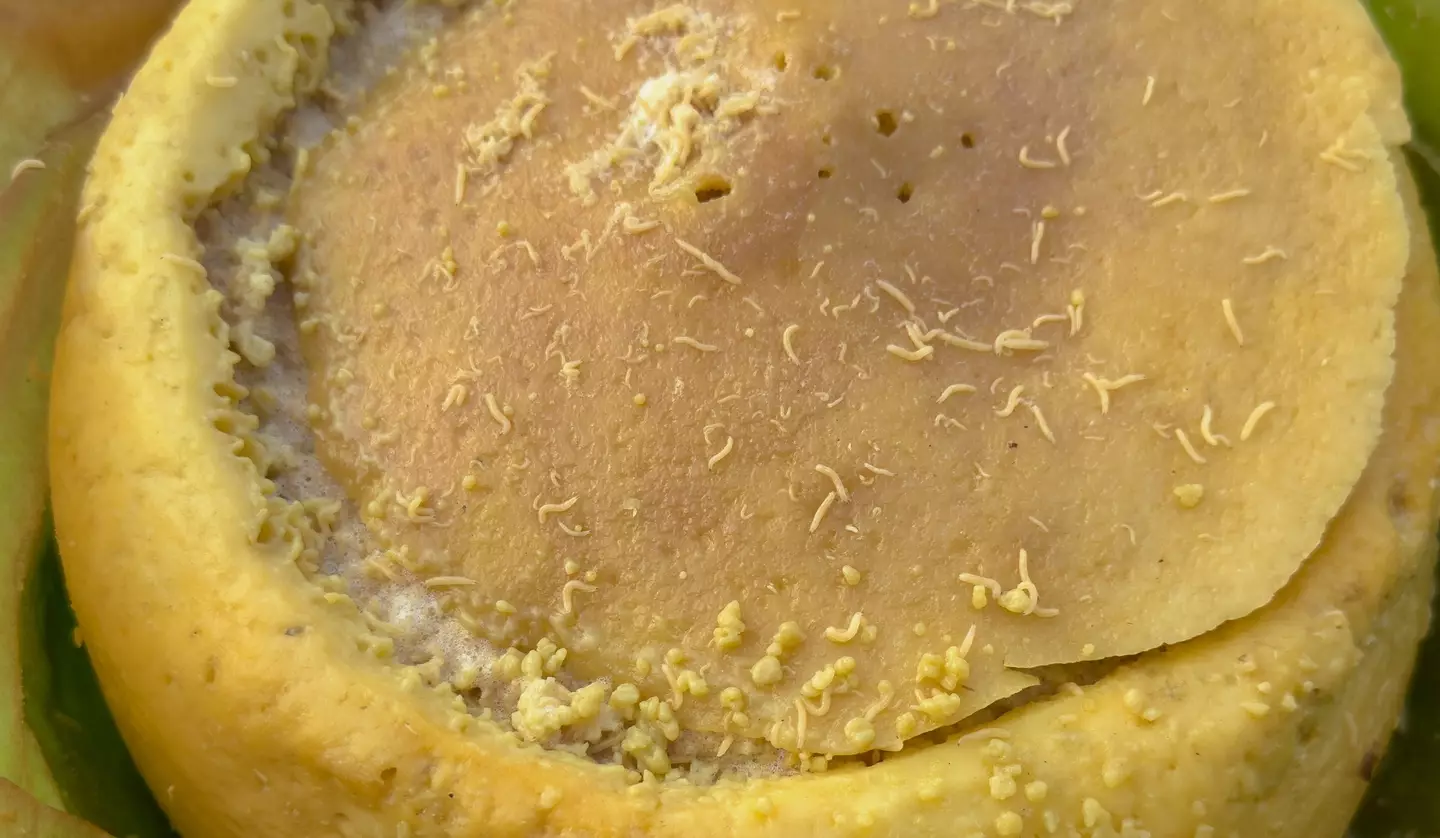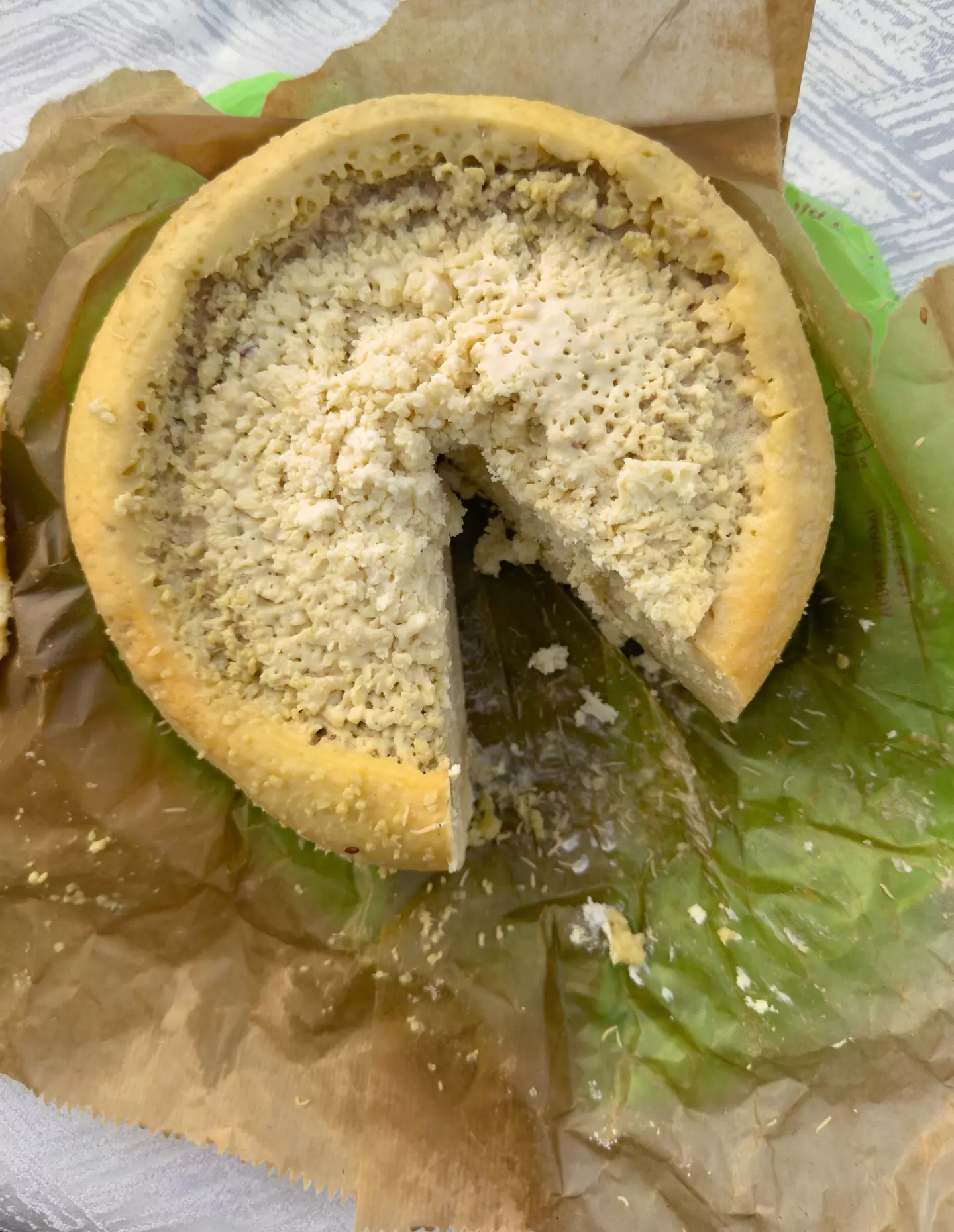
One of the best things about going abroad is immersing yourself in the local cuisine. Whether you’re tucking in to some paella in Valencia, Spain or some horse meat in Aizuwakamatsu, Japan, you can learn a lot about local culture whilst enjoying its delicacies.
That said, sometimes the local cuisines may prove to be more risky than they’re worth.
One in particular is casu martzu, dubbed Italy’s ‘most dangerous’ dish. It’s a kind of fermented sheep cheese made with maggots.
If the make-up of this cheese isn’t enough to deter you, its potential for harming our health might finish the job.
Advert

Crowned the ‘world’s most dangerous cheese’ in the 2009 Guinness Book of World Records, this Sardinian delicacy features a strong flavour that’s been compared to gorgonzola and stilton.
It’s made by pulling some of the cheese’s rind away to allow maggots to hatch inside. They eat cheese from the inside, and the process gives the cheese a distinctive if not exactly appetising flavour.
You’d think the maggots would be always removed, but some locals prefer to ensure they’re mixed in with the final product.
Unfortunately for its fans, Italy has banned its production as its falls foul of the EU’s food safety regulations.
And, of course, the maggots are the problem.
Maggots can endure stomach acid and set to work on eating at your digestive system, creating lesions across your organs.
Despite the health risks and the illegality, casu martzu is still produced by some who can’t bear to see the maggoty cheese disappear.
Around 100 tonnes of it is still being made per year, according to estimates, with an annual market value of somewhere between €2 and €3 million.
According to Sardinian journalist Giovanni Fancello, casu martzu is too ingrained within Sardinian history and culture to be surrendered.
"They ask us: ‘How do you make casu martzu?’ It’s part of our history," he told CNN Travel, noting that the dish could be traced all the way back to the Roman Empire.
"We are the sons of this food. It’s the result of chance, of magic and supernatural events."

Despite its reputation and illegality, CNN said there have been no recorded deaths from casu martzu. Whether the lesions it can create might lead to potentially lethal consequences down the line is unclear.
Sardinia is also one of the world's Blue Zones, meaning it's a region where locals are more likely than the average to live to 100 years old. Maggoty cheese might not scream 'longevity', and indeed perhaps the centenarians in Sardinia give it a wide berth.
